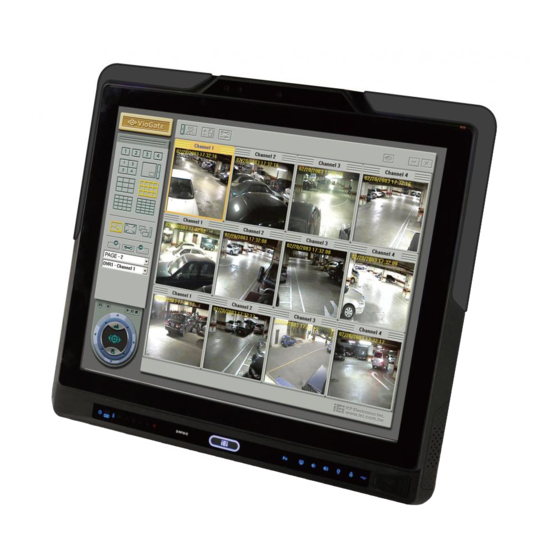
IEI Technology AFL2-17A-H61 Series Manuals
Manuals and User Guides for IEI Technology AFL2-17A-H61 Series. We have 1 IEI Technology AFL2-17A-H61 Series manual available for free PDF download: User Manual
IEI Technology AFL2-17A-H61 Series User Manual (278 pages)
Flat Bezel Panel PC with 2nd Generation Intel Core i7/ i5/ i3, Pentium and Celeron processor, Touch Screen, Wi-Fi, USB, Dual GbE LAN , RS-232/422/485, 1.3M pixels Camera, HD Audio and RoHS
Brand: IEI Technology
|
Category: Touch Panel
|
Size: 11 MB
Table of Contents
-
Introduction21
-
Features23
-
Front Panel25
-
LED Light27
-
Rear Panel29
-
Bottom Panel29
-
Overview35
-
I E Iled Run44
-
Introduction44
-
Structures48
-
Led_Blnk_Set48
-
Led_Blnk_Set49
-
Dimensions58
-
Audio62
-
Unpacking63
-
Unpacking64
-
Packing List64
-
Installation68
-
Clear Cmos78
-
Arm Mounting86
-
Overview99
-
Layout99
-
Hotkey Connector111
-
JSATA Connector112
-
LVDS Connector115
-
LED Connector117
-
RFID Connector123
-
TPM Connector129
-
Jumper Settings132
-
Removing the137
-
Bios Setup144
-
Introduction145
-
Starting Setup145
-
Using Setup145
-
Getting Help146
-
BIOS Menu Bar146
-
Main147
-
Advanced148
-
ACPI Settings149
-
CPU Information153
-
H/W Monitor163
-
I E I Feature166
-
Chipset167
-
ME Subsystem174
-
Boot176
-
Security178
-
Save & Exit179
-
Software Drivers181
-
Overview218
-
ICMC Overview221
-
Chart Panel224
-
Product Disposal229
-
Cleaning Tools230
-
Factory Restore260
-
Backup System261
-
Manual263
Advertisement
Advertisement
Related Products
- IEI AFL2-17A-H61-i3/PC-R12
- IEI Technology AFL2-17A-H61-i5/PC-R12
- IEI AFL2-17A-H61-P/R-R12
- IEI AFL2-17A-H61-P/PC-R12
- IEI Technology AFL2-17A-H61-i3/R-R12
- IEI Technology AFL2-17A-H61-i5/R-R12
- IEI Technology AFL2-17A-H61-XPE-R10
- IEI Technology AFL2-17A-H61-P/R-R13
- IEI Technology AFL2-17A-H61-i5/PC-R11
- IEI Technology AFL2-17A-H61-i3/R-R13
